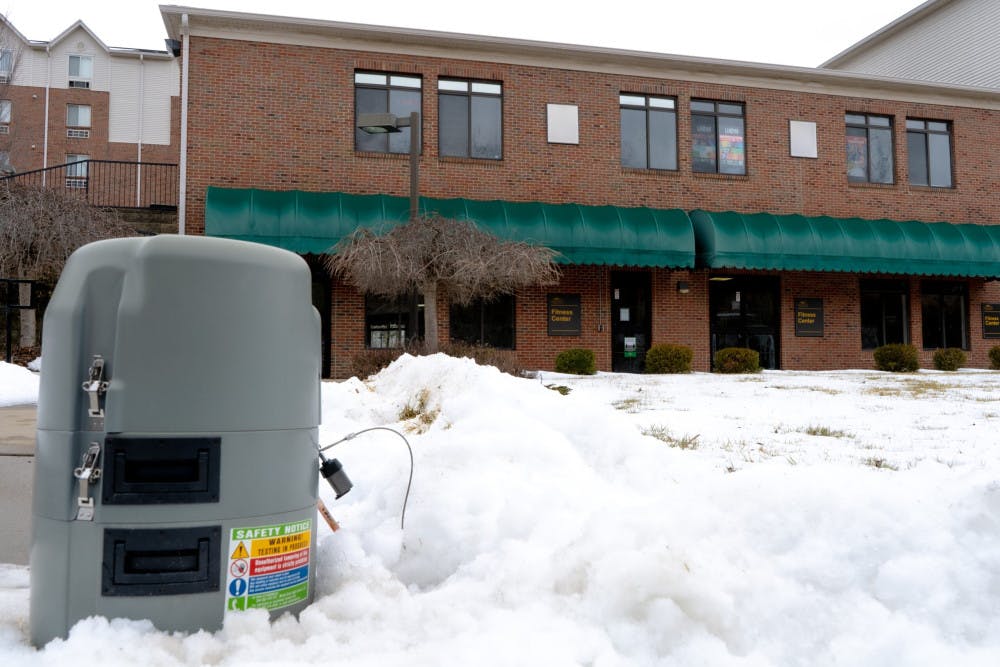Covid Scanner | Photo by Qusai Takuri | The Wright State Guardian
Wright State University (WSU) continues to use wastewater testing to monitor COVID-19 cases on campus. No additional testing or COVID precautions were taken for residential students despite past spikes and virus cases.
Wastewater testing project
COVID wastewater testing began at WSU’s in January 2021 through the use of scanners. The project was supported by the Ohio Department of Health, which gave the university a half-million-dollar grant to conduct the testing.
WSU has continued this wastewater testing as an additional tool to detect the virus on campus but, only uses it as a data measuring tool to monitor COVID cases on campus.
“The collection and analysis of the data has been occurring to determine if the cases reported in the residence halls correspond to differences observed in the wastewater analysis,” Dr. Marjorie Markopoulos, director of environmental health and safety, wrote.
Additional COVID testing has yet to occur in the residence halls because of the wastewater testing, even when a spike was detected.

According to Dr. Ola Kolawole, a WSU research assistant professor and director of the lab that conducts the testing on the wastewater, there was a spike in coronavirus cases at the beginning fall semester, of 2021, when students started to return to campus.
During this time, WSU did not enact any additional COVID precautions in the affected residential halls
“The school just brought out the general COVID testing and vaccination program at that time so there was nothing more specific done because of the spike,” Kolawole wrote.
Dr. Markopoulos went on to explain that when elevated levels are detected, Environmental Health and Safety monitors the situation to see if any response is necessary.
The science behind wastewater testing
There are four scanners located outside residential halls on the Dayton campus and one scanner on the Lake campus. These scanners take samples of the wastewater which are then sent to Kolawole’s Lab on the Dayton campus.
Kolawole’s lab then extracts Ribonucleic Acid (RNA), a molecule inside the human body, from the wastewater to detect coronavirus diseases.
“We can detect coronavirus genomes in wastewater when someone in the community is infected even without showing any symptom. We can also detect the genome a week before an outbreak occurs,” Kolawole said.
A genome is a set of an organism’s genetic makeup, according to the National Human Genome Research Institute.
This data then can be used to detect a spike in COVID cases and be used to recommend additional COVID testing.
According to Kolawole, 10 tests are taken each week from the scanners.
Wright State COVID policies
WSU has a COVID vaccine requirement for university employees, a university-wide mask mandate and an asymptomatic testing program.
The wastewater testing will continue until June 2022.












